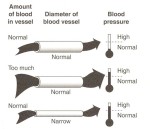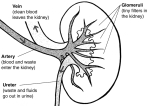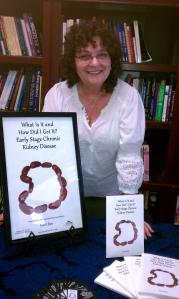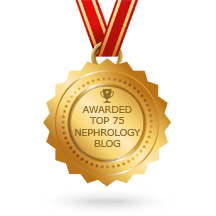I have been so stressed lately. It’s the usual: Covid-19, the elections, etc. But then there are the personal reasons: my upcoming surgery, Bear’s cataract surgery and being his caretaker, the third under-the-slab water leak in our house, and my brother’s ill health come to mind right away. I do take time to quietly read, play Word Crush, or watch a movie, but the stress is still there… and my blood glucose numbers are going up. “Is there a correlation?” I wondered.
You may remember (I certainly do) that Healthline included this blog in the Best Kidney Disease Blogs for 2016 & 2017. They like my work; I like theirs, so I went to their website to see what I could find about stress and diabetes. I have diabetes type 2, by the way. That’s the type in which you produce insulin, but your body doesn’t use it well.

Okay, now let’s see what Healthline at https://bit.ly/2TIHwWZ has to say:
“… But there’s a problem. The body can’t differentiate between danger and stress. Both trigger fight-or-flight.
So today’s most common ‘danger’ isn’t wild animals. It’s the letter from the IRS. There’s no quick resolution — no violent fight, no urgent need to run for miles. Instead, we sit in our sedentary homes and workplaces, our bodies surging with sugar, with no way to burn it off.
That’s how stress messes with diabetes. Acute stress floods us with unwanted (and un-medicated) sugar. Chronic stress is like a leaking faucet, constantly dripping extra sugar into our systems. The impact on blood sugar caused by stress is so significant that some researchers feel it serves as a trigger for diabetes in people already predisposed to developing it.”
Wait a minute here. “Acute stress floods us with unwanted (and un-medicated) sugar.” How does it do that? The answer I liked best is from Lark at https://bit.ly/3ebZU4b. Yes, Lark is a company that produces electronic aids for various stages of diabetes, but it also offers short, easy to understand explanations of what’s happening to your diabetes during different situations.
“Cortisol signals your brain and body that it is time to prepare to take action. You may be able feel this as your heart pounds and muscles tense. At the same time, what you may not feel is that cortisol signals a hormone called glucagon to trigger the liver to release glucose (sugar) into your bloodstream. The result: higher blood sugar.
Cortisol’s role in preparing your body for action goes beyond mobilizing glucose stores. Cortisol also works to make sure that the energy that you might spend (whether fighting a bear or running to stop your toddler from toddling into the street) gets replenished. That means you may feel hungry even when you do not truly need the food – and that can lead to weight gain. Again, the result is an increase in blood sugar.”

Quick reminder:
“Think of cortisol as nature’s built-in alarm system. It’s your body’s main stress hormone. It works with certain parts of your brain to control your mood, motivation, and fear.
Your adrenal glands — triangle-shaped organs at the top of your kidneys — make cortisol.
It’s best known for helping fuel your body’s ‘fight-or-flight’ instinct in a crisis, but cortisol plays an important role in a number of things your body does. For example, it:
- Manages how your body uses carbohydrates, fats, and proteins
- Keeps inflammation down
- Regulates your blood pressure
- Increases your blood sugar (glucose)
- Controls your sleep/wake cycle
- Boosts energy so you can handle stress and restores balance afterward”
Thank you to WebMD at https://wb.md/35RaDgr for the above information.
Let’s get back to how we end up with excess sugar in our blood due to both acute (sudden) and/or chronic (long term) stress. Diabetes Education Online, part of the Diabetes Teaching Center at the University of California, San Francisco, offers the following explanation. You can find out more by going to their website at https://bit.ly/3oNXgqi.
“During stressful situations, epinephrine (adrenaline), glucagon, growth hormone and cortisol play a role in blood sugar levels. Stressful situations include infections, serious illness or significant emotion stress.
When stressed, the body prepares itself by ensuring that enough sugar or energy is readily available. Insulin levels fall, glucagon and epinephrine (adrenaline) levels rise and more glucose is released from the liver. At the same time, growth hormone and cortisol levels rise, which causes body tissues (muscle and fat) to be less sensitive to insulin. As a result, more glucose is available in the blood stream.”

Now I’m stressed about being stressed… and that’s after trying to keep my stress levels down so I don’t make my Chronic Kidney Disease worse… now I find it’s also making my diabetes worse. What, in heaven’s name, will happen if I continue to be this stressed?
I went right to The National Kidney Foundation at https://bit.ly/2HQVsvs for an answer I could trust.
“The combined impacts of increased blood pressure, faster heart rate, and higher fats and sugar in your blood can contribute to a number of health problems, including high blood pressure, diabetes, and heart disease (also known as cardiovascular disease).
Stress and uncontrolled reactions to stress can also lead to kidney damage. As the blood filtering units of your body, your kidneys are prone to problems with blood circulation and blood vessels. High blood pressure and high blood sugar can place an additional strain or burden on your kidneys. People with high blood pressure and diabetes are at a higher risk for kidney disease. People with kidney disease are at higher risk for heart and blood vessel disease. If you already have heart and blood vessel disease and kidney disease, then the body’s reactions to stress can become more and more dangerous.”
Oh, my! I think I’d better quietly read, play Word Crush, or watch a movie right now.

Before I leave, I did want to let you know a $10 million Kidney Prize competition has been launched. If you’re seriously interested, go to https://akp.kidneyx.org. According to their website, KidneyX is
“The Kidney Innovation Accelerator (KidneyX), a public-private partnership between the U.S. Department of Health and Human Services (HHS) and the American Society of Nephrology (ASN), is accelerating innovation in the prevention, diagnosis, and treatment of kidney diseases.”
Until next week,
Keep living your life!





















